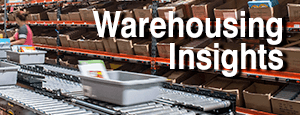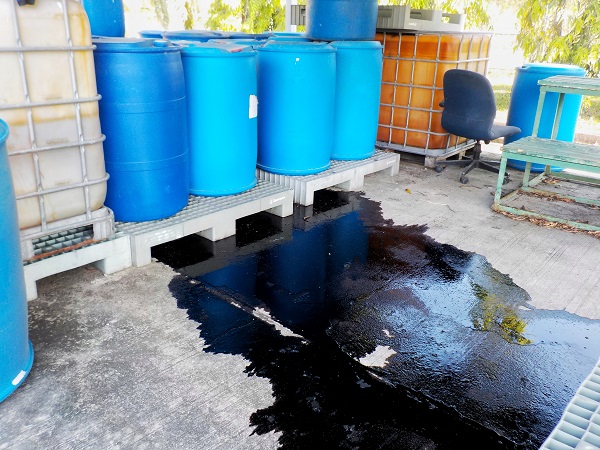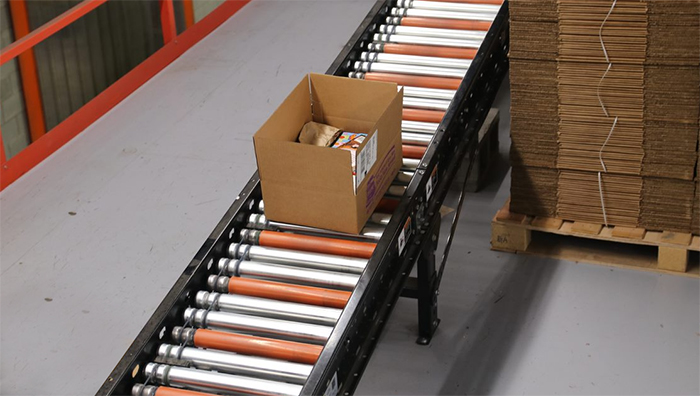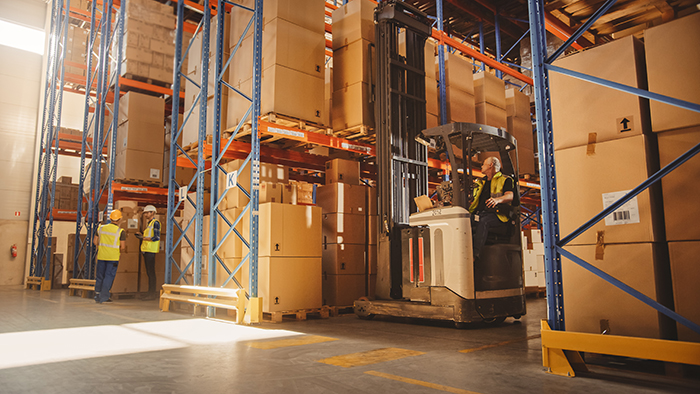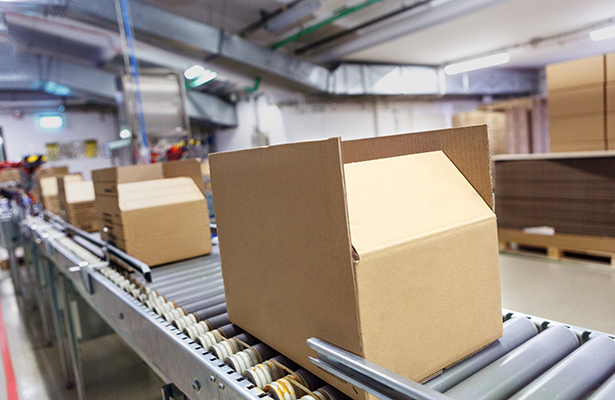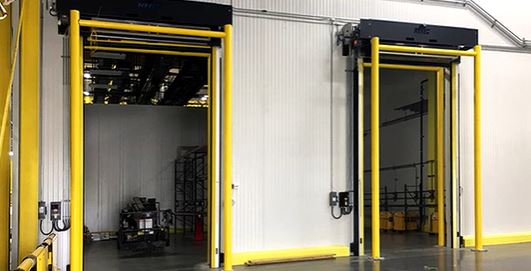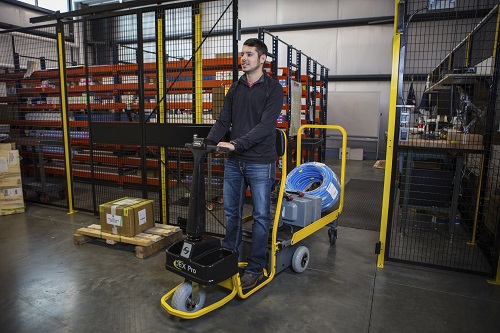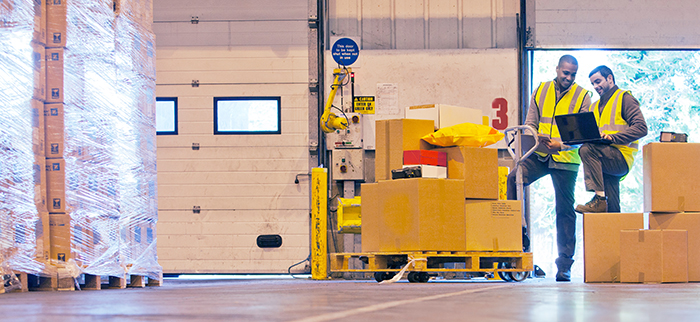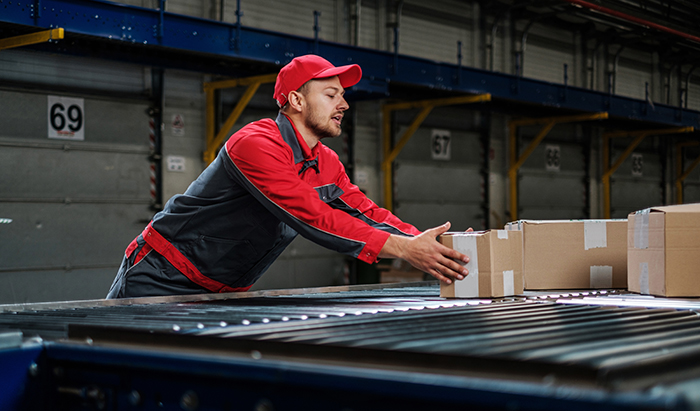
Above: distribution center worker stretches over a conveyor line to access a package. Automation can reduce or eliminate this type of stressful, repetitive motion.
Companies tend to focus on the hard-dollar ROI when they evaluate automation—labor reduction, throughput improvements, error reduction and efficiency—but should also consider “soft” benefits like ergonomics, safety and flexibility. Ergonomics in particular should be considered a primary factor in an era of aging labor and tight supply.



